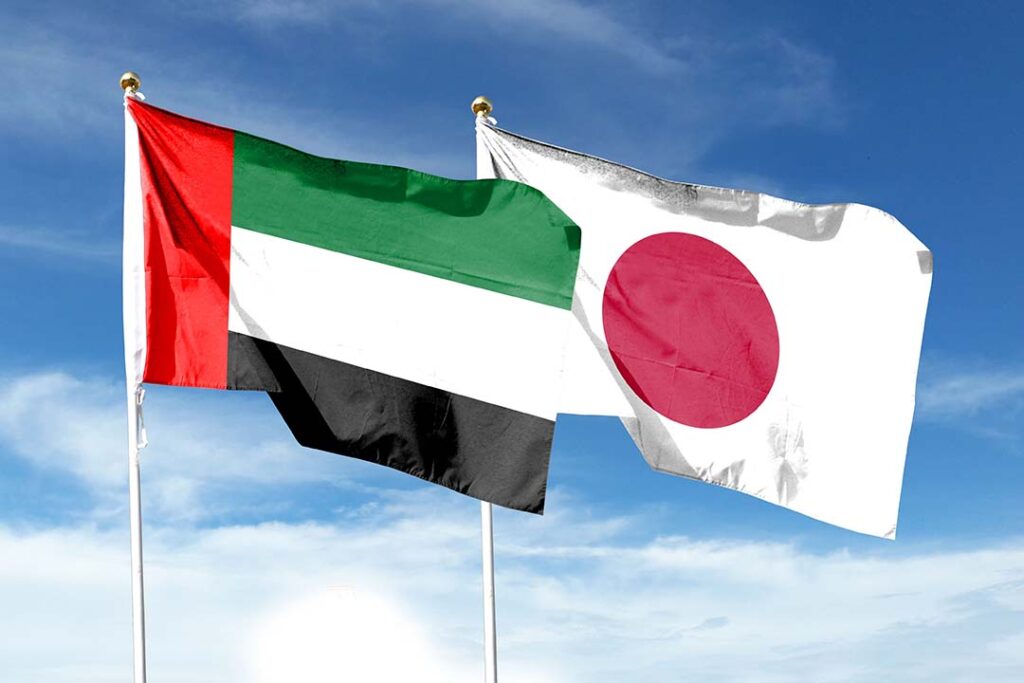Over the past 95 years, the relationship between Canada and Japan has evolved significantly, transitioning from one primarily centered on natural resources, to one that embraces cutting-edge technologies like blockchain. This journey has been marked by cooperation, cultural exchange, economic partnerships, and technological advancements that have shaped both nations’ futures. “Our two countries have developed our relationship with shared fundamental values such as freedom, democracy, human rights and the rule of law. We are important economic partners to each other and are both members of the G7, G20, Comprehensive and Progressive Agreement for Trans-Pacific Partnership (CPTPP), and Asia-Pacific Economic Cooperation (APEC). Japan-Canada relations have developed favorably,” H.E. Amb. Kanji Yamanouchi, Japanese ambassador to Canada, said.
In this snapshot, we will explore key milestones and shifts in the Canada-Japan relationship, highlighting the transformation from resource-based trade to innovative collaborations in the realm of blockchain technology.
Natural Resource Trade (1928-1970s)
Canada and Japan established diplomatic relations in 1928, laying the foundation for their future interactions. During this period, the primary focus of the bilateral relationship was centered on Canada’s vast reserves of natural resources and Japan’s need for raw materials to fuel its growing industrialization. Japan heavily relied on Canadian resources, such as lumber, minerals, and pulp, forging strong economic ties between the two nations.
Diversification and Cultural Exchange (1980s-1990s)
As Japan’s economy continued to thrive, the country sought to diversify its trading partners. This led to a broadening of Japan’s interest in Canada, going beyond just natural resources.
Cultural exchanges gained momentum during this period, with both countries promoting mutual understanding through various initiatives, including educational programs, festivals, and artistic collaborations.
Economic Partnerships and Investment (2000s)
Entering the new millennium, the Canada-Japan relationship deepened further, with an emphasis on economic partnerships and investments. Japan became one of Canada’s key trading partners, and bilateral trade expanded beyond natural resources to include automobiles, electronics, and machinery. “Traditionally, Japan-Canada economic relations have been dominated by trade in agriculture, fisheries, lumber, and natural resources, as well as automobile-related investment. But now, new areas of Japan-Canada business are emerging,” Amb. Yamanouchi pointed out.
Collaboration in Innovation and Technology (2010s)
The 2010s saw a shift in focus towards collaboration in innovation and technology. Both Canada and Japan recognized the importance of staying at the forefront of advancements to remain competitive, globally. This trend continues, to date. “The Canadian government is eager to attract Japanese companies in this clean tech market. Electric vehicle manufacturing, battery manufacturing, and hydrogen production are areas that many Japanese companies are interested in, as far as the Canadian market goes. Japanese companies like those in the automobile industry are considering expanding their production in Canada, also,” Takeshi SAITO, Executive Director of JETRO Toronto, noted.
“Over the years, Mitsubishi Canada Ltd. (MCL), has been involved in a wide variety of trade and businesses. Recently, we’ve been supporting Mitsubishi Corporation in its focus on business in Canada in two areas: natural resources and innovation. With abundant natural resources and a strong and skilled workforce, Canada has great potential; uniquely positioned for significant growth and long-term success in both sectors,” Kaori Namiki, President and CEO of MCL, shared.
Japan’s expertise in electronics and robotics combined with Canada’s excellence in artificial intelligence (AI) and research led to joint projects and research initiatives.
The Rise of Blockchain Technology (2010s-2020s)
As the world witnessed the rapid emergence of blockchain technology, both Canada and Japan recognized its transformative potential. Blockchain’s ability to revolutionize various industries, including finance, supply chain, healthcare, and more, captured the attention of both nations. Startups and established companies from Canada and Japan began exploring blockchain applications, leading to the development of innovative solutions and projects.
“DLT, of which blockchain is a form, stands for distributed ledger technology. What that means is everybody sees the same information and shares the same information. Blockchain data cannot be deleted. It’s what we call a ‘single source of truth.’ A clear record is made on the platform, and all the business parties can see that. It’s very trustworthy and reliable because everything is on record,” Andrew Neuman, Business Development Manager, DLT Labs K.K., explained about the value of utilizing blockchain technology. “We’ve had two success stories in Japan, so far. One has been with JICA and the other with Lotte chocolate,” he added.
As the world witnessed the rapid emergence of blockchain technology, both Canada and Japan recognized its transformative potential. Blockchain’s ability to revolutionize various industries, including finance, supply chain, healthcare, and more, captured the attention of both nations.
In recent years, Canada and Japan have started collaborating on various blockchain projects. Joint ventures, research partnerships, and blockchain-focused trade delegations have facilitated knowledge exchange and technology transfer. While these collaborations hold great promise, challenges such as regulatory frameworks, security concerns, and scalability issues need to be addressed to fully harness the potential of blockchain technology.
“In Japan and everywhere else in the world, there’s still a bit of confusion, when it comes to blockchain. So I focus on explaining how distributed ledger technology can directly impact their specific business. While it’s the same platform, every solution is customized to the customer needs. Because every business has specific needs, in dealing with data. You’ve got all this data, everywhere, and you don’t know what to do with it. What you need is an engine in the middle to organize the data and help build brand integrity. That’s where blockchain comes in,” Francis Lalonde, Chief Commercial Officer, DLT Labs, pointed out.”
A profound transformation for future-readiness
The 95-year journey between Canada and Japan reflects a profound transformation from a resource-focused trade relationship to one characterized by innovation and technology-driven collaborations, particularly in the realm of blockchain. Embracing this transformative technology has the potential to further strengthen the bonds between the two nations and create new avenues for economic growth and mutual prosperity in the years to come.
As the world continues to evolve, Canada and Japan stand poised to embrace future challenges and opportunities together, building a robust and dynamic partnership for the next century and beyond.















